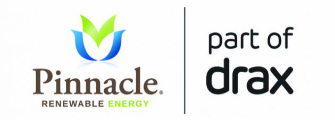

Virtual Event
WPAC Conference & AGM 2021 – Day 1
September 20, 2021 at
11:00am ET
ON DEMAND
Verifying the Pellet Carbon Story: Presenting Results of a Canada-Japan GHG study
Speaker: Joseph Aquino, MBA, RPF, Pinnacle Renewable Energy
The Sustainability Working Group of Japan’s Ministry of Energy, Trade and Industry is presently examining how to ensure bioenergy will contribute to mitigating climate change by reducing the greenhouse gas emissions from fossil fuels.
The Wood Pellet Association of Canada (WPAC) has recently collected supply chain emissions data from 18 Western Canadian wood pellet plants through to seaports in Eastern and Western Japan. WPAC used the methodology set by the Joint Research Center of the European Commission to calculate GHG emissions from Canadian wood pellets and compare those emissions to coal.
This presentation will explain how WPAC carried out the study and how it demonstrates that using Canadian wood pellets to generate electricity results in substantial GHG savings for Japanese utilities.
 Joseph Aquino
Joseph Aquino
Joseph Aquino is Director of Sustainability at Pinnacle Renewable Energy where he is responsible for control of control of sustainably managed raw material used in the safe production of high-quality wood pellets at all of Pinnacle’s pellet mills.
Previously Joseph worked in fibre procurement and forest planning. Joseph is a registered professional forester and has an MBA from the University of Northern British Columbia.
Presentation Summary:
Canadian wood pellet producers are committed to supplying global customers with responsible green energy product. Delivering on that commitment requires transparency, including demonstrating the environmental credentials of our energy products with science and data.
Recently, WPAC members undertook a rigorous analysis of greenhouse gas (GHG) emissions along the entire supply chain – from production in Canada through to delivery in Japan – and compared with similar analysis for pellets produced in the Southern United States as well as coal. Data came from third party audited GHG reports.
In total, data from 17 Western Canadian pellet plants were collected and analyzed, and compared to other fuel sources. The analysis calculated emissions for all three fuel sources related to:
- Extraction and cultivation of raw materials,
- Processing,
- Transportation across the entire supply chain to customer, and
- Fuel in use (utility).
The results showed that wood pellets fired in Japan produced only 8.37% of the GHG emissions produced by coal (more than a 91% reduction), while wood pellets from the Southern US State of Alabama produced 20.08% of the emissions produced by coal (nearly an 80% reduction).
Western Canadian pellets offer a transportation advantage to other jurisdiction, with the shorted sea transportation route from North America to Asia. Wood pellets offer demonstrable climate benefits compared to fossil fuels, particularly coal, and have an important role to play in the transition to a low carbon economy.
For a downloadable PDF of this summary, Click here.








